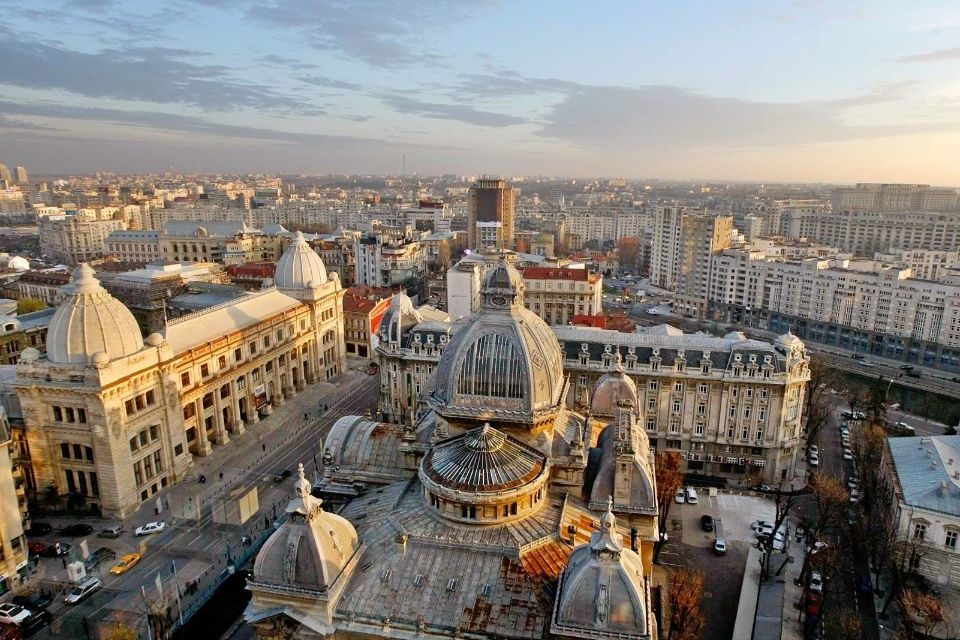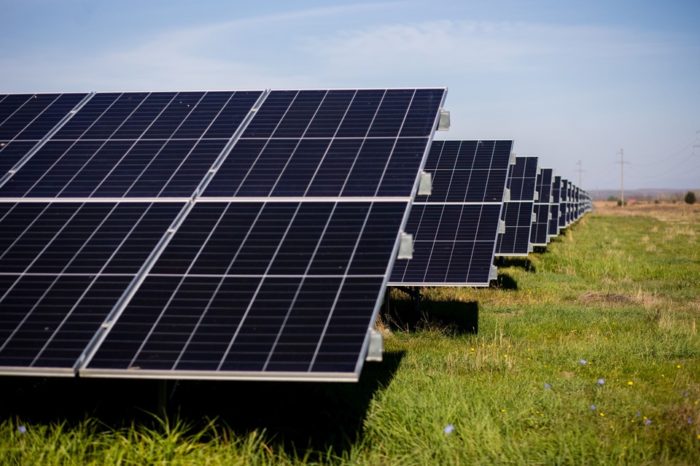Romanians consider climate adaptation a national priority, EIB survey shows

More than eight out of ten Romanian respondents recognise the need to adapt their lifestyle because of climate change, according to the annual Climate Survey commissioned by the European Investment Bank (EIB). Among the challenges facing Romania, respondents ranked climate change second only to the increased cost of living. Many believe that investing in adaptation now will prevent higher costs in the future.
From 14 to 16 September 2024, Romania was hit by severe flooding caused by Storm Boris, with the counties of Galați and Vaslui particularly affected. The floods resulted in at least seven deaths, thousands of evacuations, and damage to some 6 000 homes. The emergency response included military firefighters using boats and helicopters to rescue hundreds of people, while the government mobilised resources to help the communities that were affected.
As natural disasters increase in frequency and severity, the economic toll of climate change continues to rise. Scientists warn that these disasters will become increasingly costly. According to a report by the European Environment Agency, Europe is currently the fastest-warming continent, with the number of extreme weather events expected to increase as global temperatures rise. A higher number of extreme weather events poses a significant threat to infrastructure and the stability of global water and food supplies, underlining the urgent need for comprehensive climate change adaptation strategies.
“Adapting to climate change is not just a necessity for Romania – it is a strategic investment in the country’s future,” said EIB Vice-President Ioannis Tsakiris. “The overwhelming recognition among Romanians of the need to act now underlines the urgency of our work. By prioritising climate adaptation, we can protect our communities, create jobs and build a more resilient economy. At the EIB, we are fully committed to helping Romania meet these challenges head-on, ensuring that today’s investments translate into long-term prosperity and stability for all.”
Today, the EIB released its seventh annual Climate Survey, which presents the views of over 24 000 respondents from across the European Union and the United States on the topic of climate change. In Romania, 1 000 people took part in the survey, which was conducted in August 2024.
Romanian respondents say that climate change is the second-biggest challenge facing their country, after the rising cost of living.
In view of this:
- 97 percent (close to the EU average of 94 percent) recognise the need to adapt to climate change. 59 percent (9 points above the EU average of 50 percent) consider climate adaptation a priority for the country for the coming years.
Adaptation to climate change is also considered an economic opportunity and a long-term investment:
- 92 percent of respondents (compared to the EU average of 86 percent) say that investing in climate change adaptation can create jobs and boost the local economy.
- 90 percent (compared to the EU average of 85 percent) believe that adapting to climate change requires investment now to avoid higher costs later.
Romanian respondents recognise the economic opportunities that climate change adaptation measures present, while first-hand experiences of extreme weather events add to the sense that urgent action is required:
- 93 percent of Romanian respondents (13 points above the EU average) have experienced at least one extreme weather event in the last five years. 71 percent (16 points above the EU average) have suffered from extreme heat and heatwaves, 62 percent (27 points above the EU average) have experienced droughts and 44 percent (10 points above the EU average) have seen heavy storms or hail.
Extreme weather events have serious, wide-ranging consequences:
- 83 percent of Romanian respondents (15 points above the European average of 68 percent) reported having suffered at least one direct consequence of an extreme weather event. 37 percent (17 points above the EU average) were impacted by power cuts or energy supply issues, 29 percent (9 points above the EU average) suffered from health issues such as heat stroke or respiratory problems, while 29 percent (10 points above the EU average) saw forests or natural spaces near their homes destroyed.
Romanian respondents are well aware of the need to adapt:
- 83 percent of Romanian respondents (compared to the EU average of 72 percent) recognise that they will have to adapt their lifestyle due to climate change.
- 46 percent (compared to the EU average of 35 percent) think they will have to move to a less climate-vulnerable place (whether locally or abroad) to avoid floods, forest fires or other extreme weather events.
- 38 percent (10 points above the EU average) say they will have to move to a cooler region or country.












